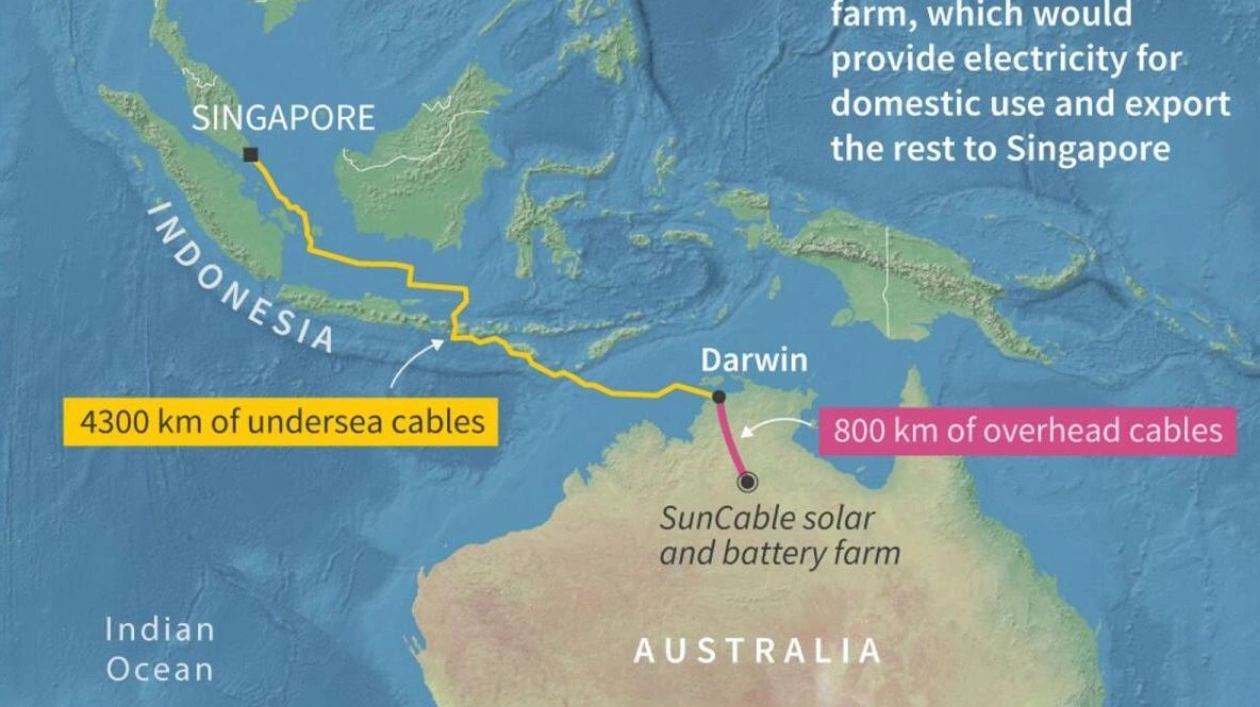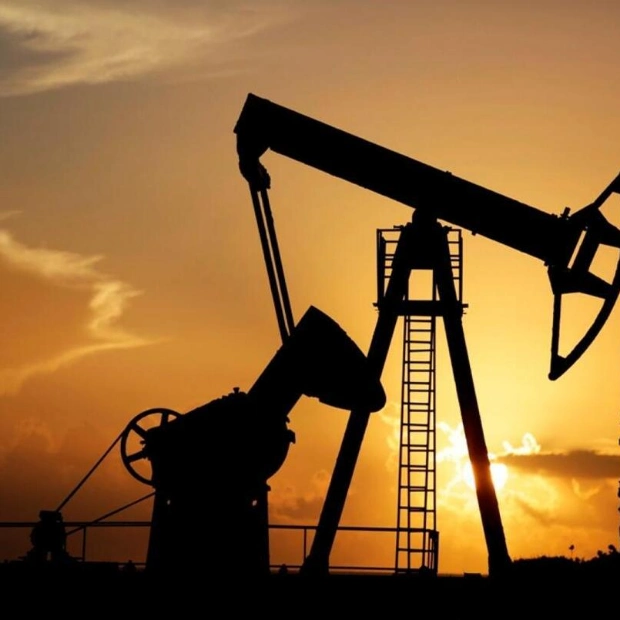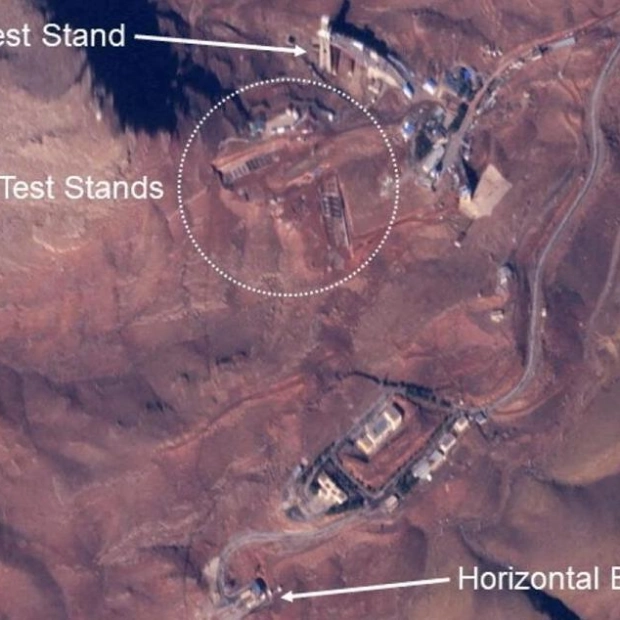Australia gave the green light to the ambitious SunCable project on Wednesday, which aims to build the world's largest solar precinct and export energy to Singapore. The US$24 billion initiative, located in Australia's northern outback, is expected to power three million households. The project, supported by tech mogul and environmental advocate Mike Cannon-Brookes, will feature a vast array of solar panels and batteries, and eventually, a cable connecting Australia to Singapore.
Environment Minister Tanya Plibersek praised the project, stating, "It will be the largest solar precinct in the world and positions Australia as a global leader in green energy." The project is slated to commence energy production by 2030. Covering 12,000 hectares, it will generate four gigawatts of power per hour for domestic consumption and an additional two gigawatts to be sent to Singapore via an undersea cable, meeting about 15 percent of the city-state's energy needs. The batteries are designed to store approximately 40 gigawatts.
Cameron Garnsworthy, managing director of SunCable Australia, described the approval as "a landmark moment in the project's journey." Despite the approval, the project still faces several regulatory hurdles, including negotiations with Singapore's energy market authority, Indonesia's government, and Australian Indigenous communities. Garnsworthy noted that SunCable will now concentrate on the next phase of planning, aiming for a final investment decision by 2027.
Australia, currently a major exporter of coal and gas, has also suffered from the impacts of climate change, ranging from severe heatwaves to floods and bushfires. Although Australians are avid users of residential solar panels, successive governments have been sluggish in fully embracing renewable energy. In 2022, renewables accounted for 32 percent of Australia's total electricity generation, compared to coal's 47 percent, according to government data.
Amanda McKenzie, CEO of the Climate Council, highlighted the significance of the new solar hub, calling it a bold move towards making Australia a "clean energy powerhouse." She emphasized the importance of such projects in providing affordable energy and reducing climate pollution. "With the impending closure of coal-fired power stations, Australia must expedite the deployment of solar and storage at all levels—rooftops, large-scale projects, and everything in between," she said.
The project also marks a significant expansion for Cannon-Brookes, who has shifted from co-founding the software company Atlassian to investing in the renewable energy sector, including becoming a shareholder in AGL Energy.






